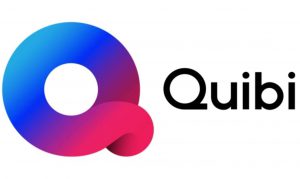If the whole point of Quibi was to offer consumers ten-minute video breaks in their busy lives in the supermarket queue or on the morning commute, what worse time to launch that just as everyone is being told to stay at home where they have untold hours of enforced idleness in front of their massive flatscreen TVs and everything Netflix and DisneyPlus can possibly throw at them?
So the shortform video subscription service Quibi is to shut down after just seven months, and we can safely assume the anti-subscription club will be jumping on this as proof the model isn’t viable.
But the problem with that is that such an assertion flies in the face of the evidence we have seen from Netflix, DisneyPlus, Scribd, Storytel, et al that not only is the model what consumers want but that it can work for both the service provider and the content supplier.
So why the big fail for Quibi?
Well, we are not yet privy to the financial details but we do know that Quibi launched before it was fully ready, supposedly to take advantage of a pandemic that as expected forced a lot more people to seek entertainment online that might otherwise have happened.
And of course we see the success stories rolling in month after month. Which makes it all the more surprising that Quibi, with almost no competition, blew it.
Except, of course, that there was plenty of competition, and perhaps not quite enough worthwhile content, and that is what separates the success stories like Netflix and Storytel from the sinking ships like Quibi.

What Quibi failed to do was give consumers what they wanted at a price that made sense for them.
Did consumers want shortform video? Yes, of course. But with so much shortform video available on channels like YouTube. Facebook, TikTok, etc, for free, why pay Quibi?
And more importantly, why pay Quibi just as a pandemic set in when unemployment loomed large, and there were so many other competing subscription options for fewer and fewer spendable dollars?
Rather than look dismayed at the two million subscribers who did sign up – that’s more than Storytel has – we should be expressing surprise that so many felt the project worth the investment.
Because the thing about subscription is value for money, not simple cost.
When a consumer signs up to Netflix, or Storytel, or Kindle Unlimited, they know they are going to get far more than their money’s worth. The more films they watch, audiobooks they listen to or ebooks they read, the better they feel about the monthly rate they are forking out. A two hour film or a 12-part series… A twenty hour audiobook… A four hour ebook read… Cop a handful of those and the consumer is happy as a lamb with two tails.
With shortform video? Not so much. Especially a shortform video designed with mobile in mind, when everyone has a TV at home and can watch a full length streamed movie or documentary instead, on a screen that doesn’t strain the eyes.
The value of Quibi came only in its shortform quick-watch-and-do-something-else appeal. Which can only satisfy a consumer so far. It’s the same reason we don’t see ebook short-story subscription services (as opposed to serialised fiction services). Why would we even need one?
It’s the same reason podcasting generally does not have stand-alone commercial subscription appeal. And while there are services like Podimo that appear to be bucking the trend – the exception that proves the rule, perhaps – podcasts are a different animal from shortform video.
Put simply, you can listen to a ten-minute podcast while in the car, walking the dog, crossing the road, in bed with … Well, you get the picture. You can listen on a smartphone and do other things at the same time, which is also of course at the heart of the audiobook boom.
You can’t meaningfully do other things while watching a video, however short. Like reading a book, it requires attention. Attention that might be better deployed elsewhere.
And to prematurely launch as the pandemic struck seems with hindsight the height of madness. If the whole point of Quibi was to offer consumers ten-minute video breaks in their busy lives in the supermarket queue or on the morning commute, what worse time to launch that just as everyone is being told to stay at home where they have untold hours of enforced idleness in front of their massive flatscreen TVs and everything Netflix and DisneyPlus can possibly throw at them?
Of course there will be aficionados of shortform that will pay for the privilege of quality content, just as there are readers out there who savour short stories and shortform non-fiction narratives.
As Variety reported, Quibi earned ten Emmy nominations in the shortform category. That’s impressive!
But as Quibi found to its cost, not enough to cover the huge investment ($1.75 billion) in the project.
RIP, Quibi. Missed by some, no doubt, but as Netflix and Storytel have shown, it’s not the model that is broken. Rather, just the opposite.





